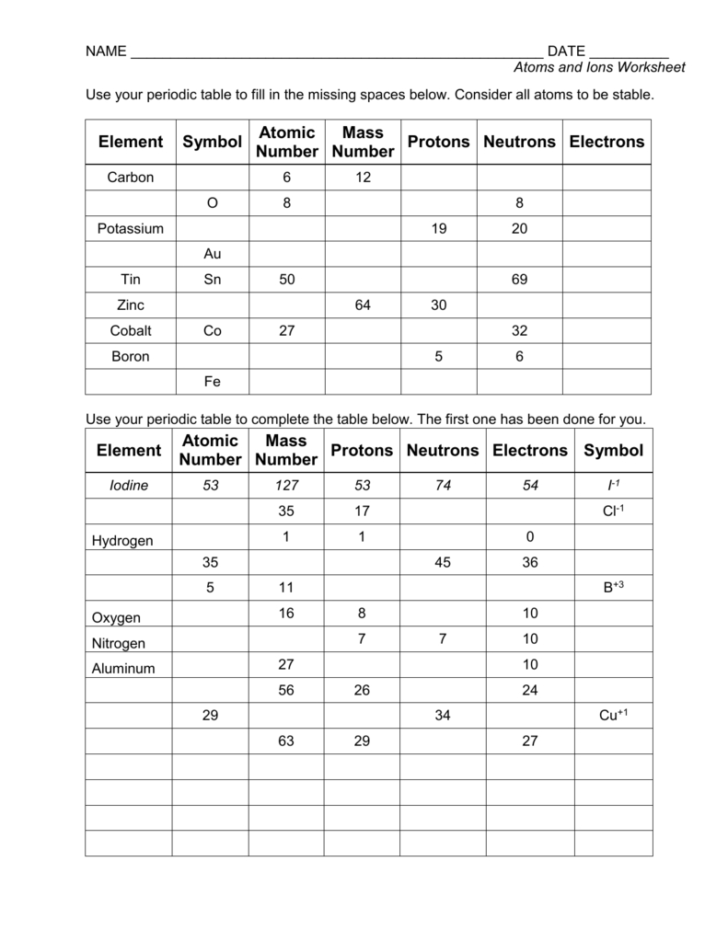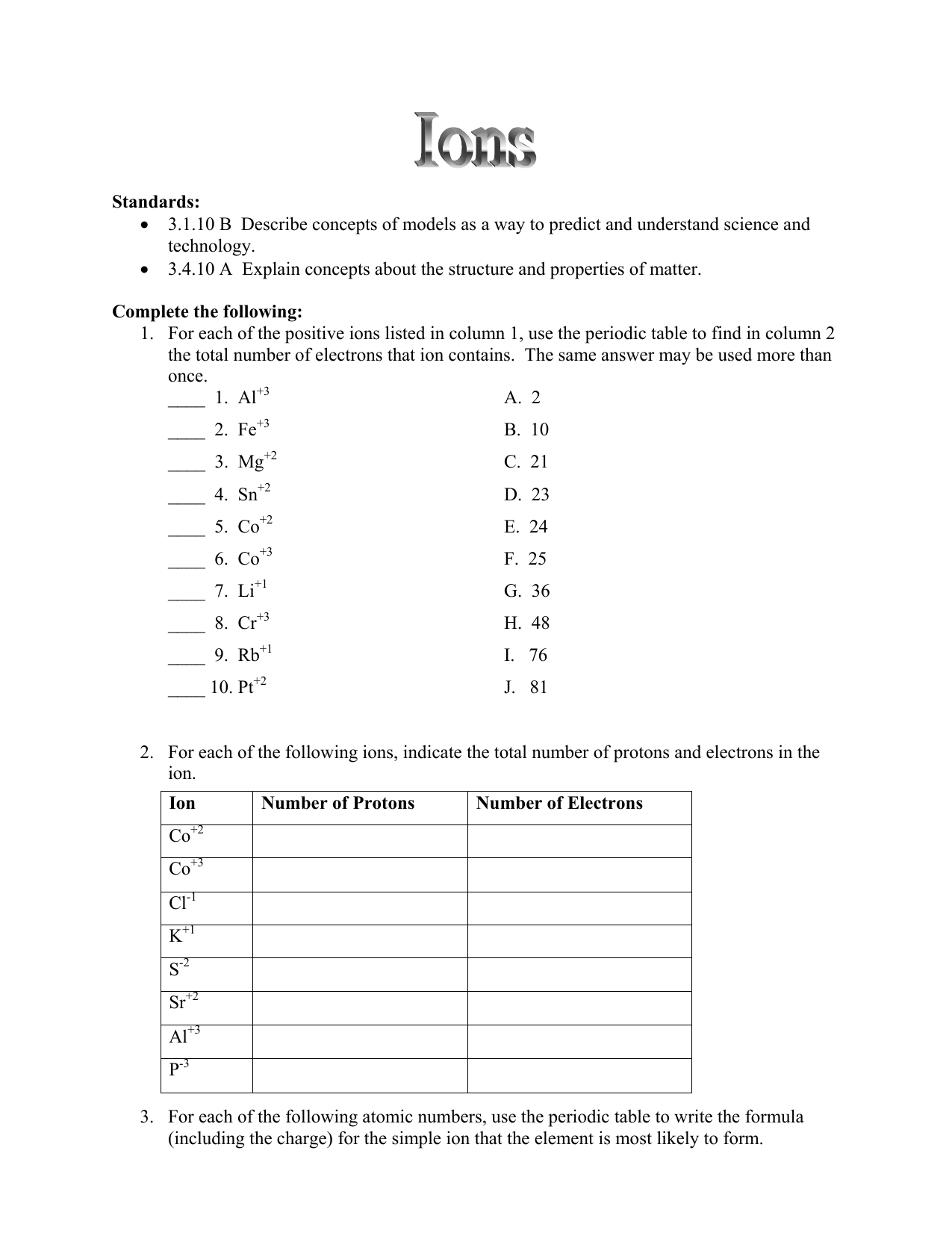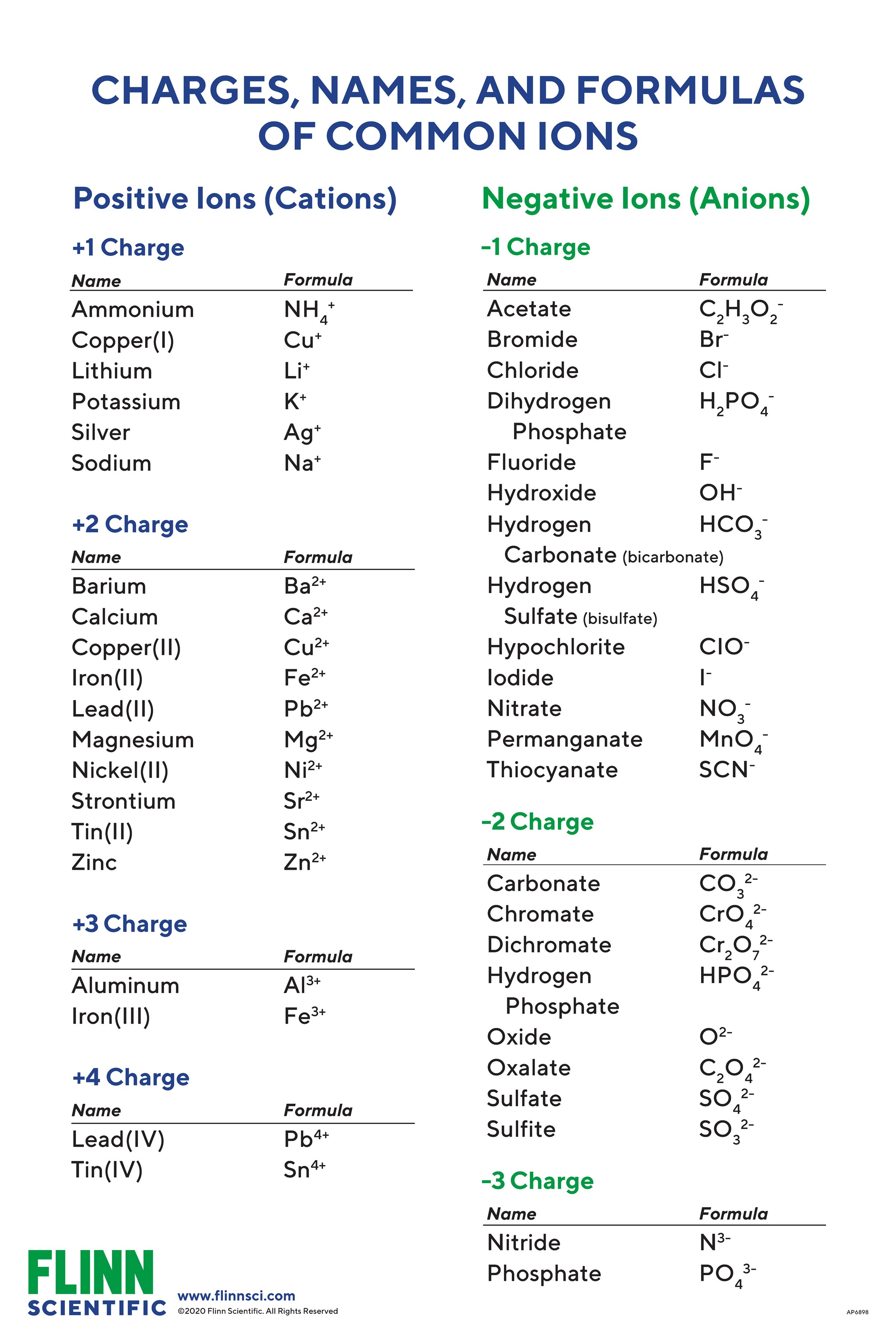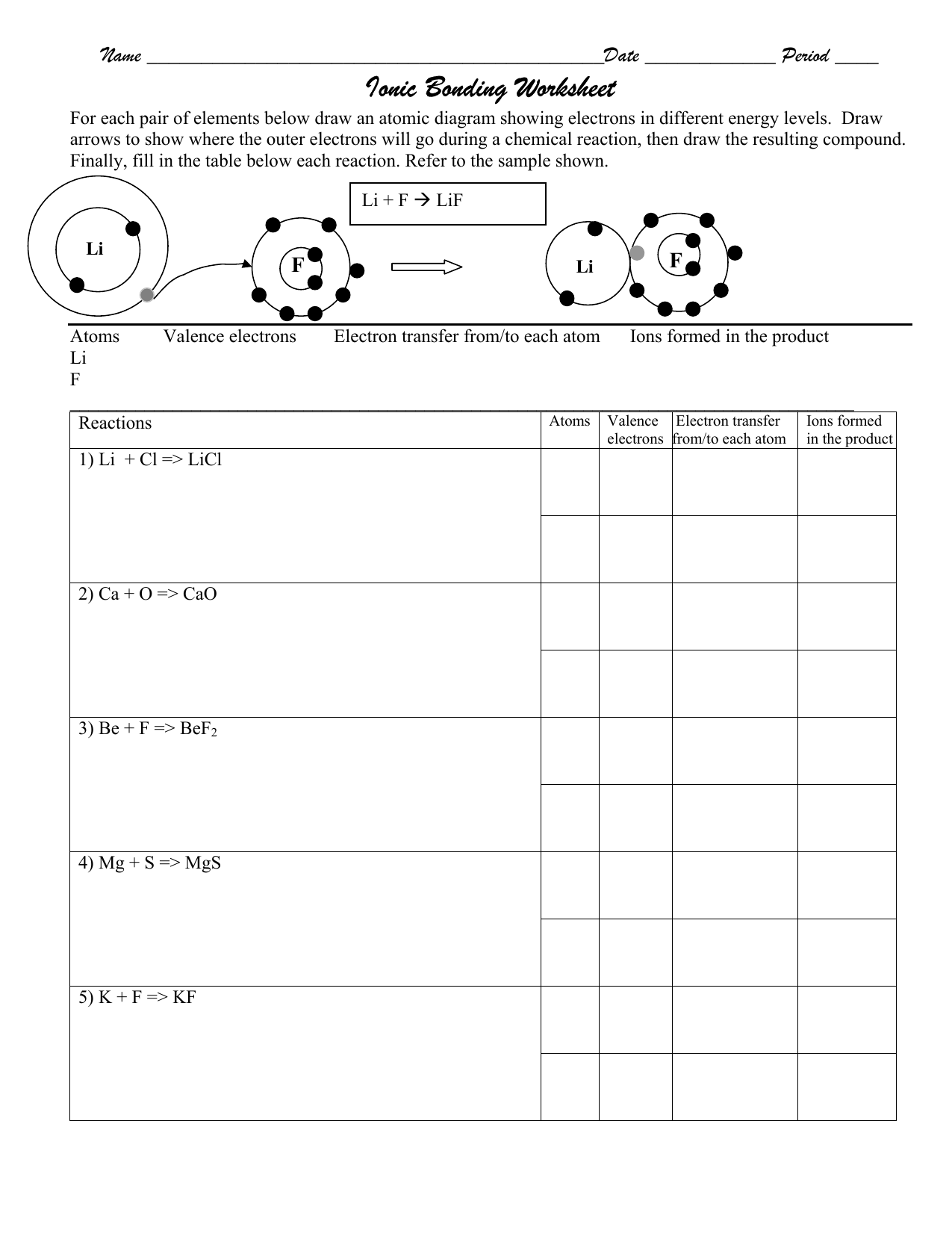Ion Practice Sheet
Ion Practice Sheet - In a neutral atom the number of protons equals the number of electrons. In the first table, for each of the ions, indicate the total number of protons and electrons. Web the following ionic compounds are found in common household products. Web ionic compounds are formed from the attraction of positive cations for negative anions; In the second table, when. An atom can never gain or lose protons 3. The resulting compound is always. Name each of the compounds:.
Name each of the compounds:. The resulting compound is always. Web the following ionic compounds are found in common household products. In the second table, when. In the first table, for each of the ions, indicate the total number of protons and electrons. In a neutral atom the number of protons equals the number of electrons. Web ionic compounds are formed from the attraction of positive cations for negative anions; An atom can never gain or lose protons 3.
Name each of the compounds:. In a neutral atom the number of protons equals the number of electrons. In the second table, when. The resulting compound is always. In the first table, for each of the ions, indicate the total number of protons and electrons. Web the following ionic compounds are found in common household products. An atom can never gain or lose protons 3. Web ionic compounds are formed from the attraction of positive cations for negative anions;
[Solved] Polyatomic Ion Practice Worksheet Compounds with Polyatomic
Name each of the compounds:. In the first table, for each of the ions, indicate the total number of protons and electrons. An atom can never gain or lose protons 3. In the second table, when. Web ionic compounds are formed from the attraction of positive cations for negative anions;
Ion Formation Worksheets Answer Key
Web ionic compounds are formed from the attraction of positive cations for negative anions; Web the following ionic compounds are found in common household products. The resulting compound is always. Name each of the compounds:. An atom can never gain or lose protons 3.
Ion Practice Set Worksheet Answers
The resulting compound is always. Name each of the compounds:. An atom can never gain or lose protons 3. Web the following ionic compounds are found in common household products. In a neutral atom the number of protons equals the number of electrons.
Ion Practice Set Introduction YouTube
Name each of the compounds:. In the second table, when. Web ionic compounds are formed from the attraction of positive cations for negative anions; In the first table, for each of the ions, indicate the total number of protons and electrons. An atom can never gain or lose protons 3.
CP Chemistry Worksheet Ions
In the first table, for each of the ions, indicate the total number of protons and electrons. Name each of the compounds:. The resulting compound is always. In a neutral atom the number of protons equals the number of electrons. In the second table, when.
Ion Names, Formulas, and Charges Charts for Chemistry
In the first table, for each of the ions, indicate the total number of protons and electrons. Name each of the compounds:. Web the following ionic compounds are found in common household products. The resulting compound is always. An atom can never gain or lose protons 3.
Ion Practice Set PDF Ion Proton
Web ionic compounds are formed from the attraction of positive cations for negative anions; In the second table, when. In a neutral atom the number of protons equals the number of electrons. In the first table, for each of the ions, indicate the total number of protons and electrons. An atom can never gain or lose protons 3.
Ion Practice YouTube
In a neutral atom the number of protons equals the number of electrons. An atom can never gain or lose protons 3. Name each of the compounds:. In the first table, for each of the ions, indicate the total number of protons and electrons. The resulting compound is always.
Names And Formulas For Ionic Compounds Worksheet
Web ionic compounds are formed from the attraction of positive cations for negative anions; The resulting compound is always. An atom can never gain or lose protons 3. Web the following ionic compounds are found in common household products. In the second table, when.
Web Ionic Compounds Are Formed From The Attraction Of Positive Cations For Negative Anions;
The resulting compound is always. In the second table, when. In a neutral atom the number of protons equals the number of electrons. An atom can never gain or lose protons 3.
Name Each Of The Compounds:.
Web the following ionic compounds are found in common household products. In the first table, for each of the ions, indicate the total number of protons and electrons.








